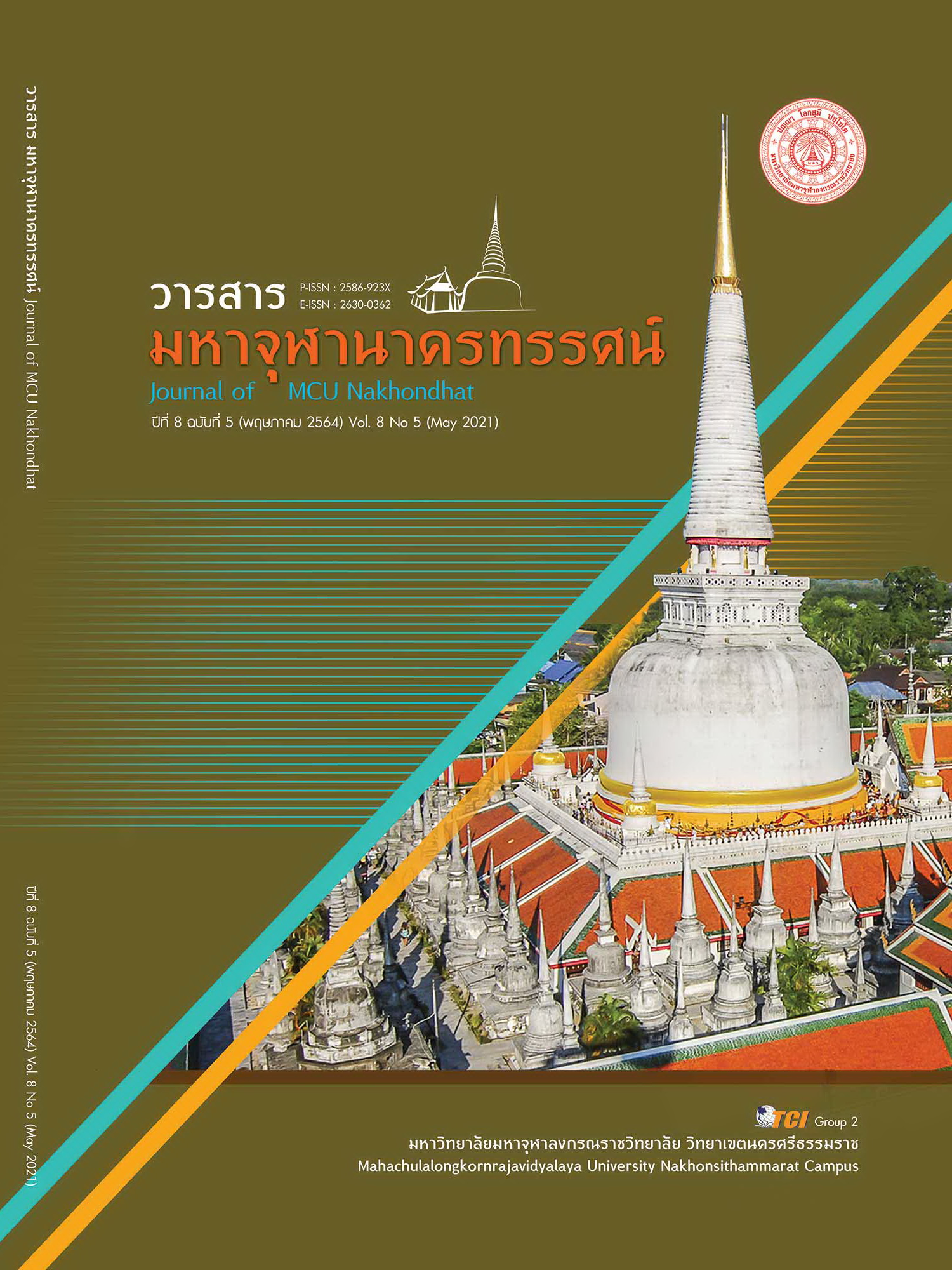THE DEVELOPMENT OF TEACHING AND LEARNING BASED ON ANDRAGOGY CONCEPT IN BIOSTATISTICS AND EPIDEMIOLOGY SUBJECT
Main Article Content
Abstract
The objectives of this research article were to develop teaching and learning based on andragogy concept in biostatistics and epidemiology subject. This research and development is divided into 3 steps: 1) development of teaching and learning based on andragogy concept in biostatistics and epidemiology subject 2) Study of teaching and learning management results based on andragogy concept 3) Assessing the possibilities of the teaching and learning based on andragogy concept. The samples were 74 of bachelor nursing students by purposive selection. The activities developed by Andragogy theory which has 7 levels; 1) The establishment of climate conducive to adult learning, 2) the creation for participative planning 3) diagnosis of needs for learning 4) the formulation of direction of learning 5) the development of design of activities 6) the operation of activities and 7) the rediagnosis of learning. The research tools comprised: 1) questionnaires of the learning outcome under the qualification framework for higher education, questionnaires of knowledge measurement and questionnaires of satisfaction in teaching and learning. Analyzed the data by content analysis frequency distribution and pair - t test. The research results showed that 1) the learning outcome under the qualification framework for higher education was significantly higher than before the study statistically (p <0.05) 2) the knowledge after learning was higher than before. The statistical significance was significantly higher (p <0.05) 3) Satisfaction was the highest ( = 4.67, SD = 0.27).
Article Details
References
กัญจน์ณิชา อิ่มสมบัติ และอภิชาติ เลนะนันท์. (2562). การพัฒนาการเรียนรู้ในศตวรรษที่ 21 ของผู้เรียนในโรงเรียนหนองชุมแสงวิทยาโดยใช้กระบวนการวิจัยแบบมีส่วนร่วม. วารสารมนุษยศาสตร์และสังคมศาสตร์ มหาวิทยาลัยธนบุรี, 13(3), 64-76.
จรัสศรี เพ็ชรคง. (2559). ปัจจัยเชิงสาเหตุที่มีอิทธิพลต่อผลลัพธ์การเรียนรู้ของนักศึกษาพยาบาล: วิทยาลัยพยาบาลบรมราชชนนี จักรีรัช. วารสารวิชาการมหาวิทยาลัยอีสเทิร์นเอเซีย ฉบับวิทยาศาสตร์และเทคโนโลยี, 10(2), 199-211.
ชิดชงค์ ส.นันทนาเนตร. (2560). ทฤษฎีการเรียนรู้สำหรับผู้ใหญ่. นครปฐม: ร้านสีฟ้า สเตชั่นเนอรี่.
ธนภรณ์ กาญจนพันธ์. (2559). ผลการจัดการเรียนรู้แบบห้องเรียนกลับทางที่มีต่อผลสัมฤทธิ์ทางการเรียนวิชาชีววิทยา การกำกับตนเอง และความพึงพอใจต่อการจัดการเรียนรู้ของนักเรียนชั้นมัธยมศึกษาปีที่ 5. ใน วิทยานิพนธ์ศึกษาศาสตรมหาบัณฑิต สาขาวิชาการสอนวิทยาศาสตร์และคณิตศาสตร์. มหาวิทยาลัยสงขลานครินทร์.
บรมัตถ์ ท้าวแก่นสาร. (2555). ผลของการจัดกิจกรรมการศึกษานอกระบบโรงเรียนตามแนวคิดแอนดราโกจีที่มีต่อความสามารถในการอนุรักษ์วัฒนธรรมของเยาวชนไทใหญ่. ใน วิทยานิพนธ์ครุศาสตรมหาบัณฑิต สาขาวิชาการศึกษานอกระบบโรงเรียน. จุฬาลงกรณ์มหาวิทยาลัย.
พระราชบัญญัติการศึกษาแห่งชาติ (ฉบับที่ 3) พ.ศ. 2553. (2553). ราชกิจจานุเบกษา เล่ม 127 ตอน 45 ก หน้า 1-3 (22 กรกฎาคม 2553).
รักษิต สุทธิพงษ์. (2560). กระบวนทัศน์ใหม่ทางการศึกษากับการพัฒนาครูไทยในยุคดิจิตอล. วารสารศึกษาศาสตร์ มหาวิทยาลัยนเรศวร, 19(2), 344-355.
อุไรวรรณ หว่องสกุล. (2554). การพัฒนาโปรแกรมการศึกษานอกระบบโรงเรียนตามแนวคิดแอนดราโกจีของ มัลคอม โนลส์ เพื่อส่งเสริมนิสัยรักการอ่านของนักศึกษาการศึกษานอกโรงเรียน วิธีเรียนทางไกล. ใน ดุษฎีนิพนธ์ครุศาสตรดุษฎีบัณฑิต สาขาวิชาการศึกษาตลอดชีวิต. จุฬาลงกรณ์มหาวิทยาลัย.
Bellanca, J. & Brandt, R. (2010). 21st Century Skills: Rethinking How Students Learn. Bloomington. IN: Solution Tree. 2.71.
Knowles, M. S. (1978). The Adult Learner a Neglected Species. (2nd ed). Houston: Gulf publishing Co.
Smaldino, S. E. et al. (2012). Instructional Technology and Media for Learning. (10th Edition). New Jersey: Pearson Merrill/prentice hall.


